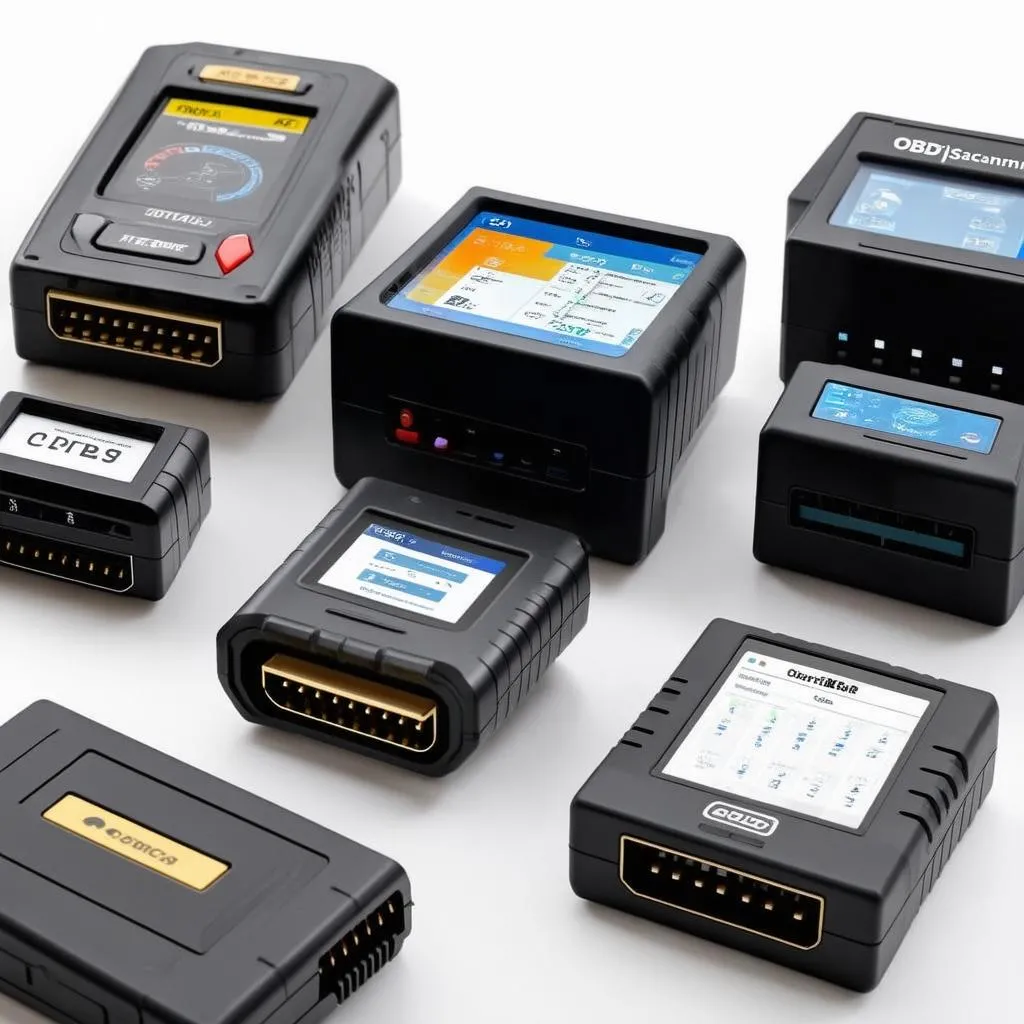“My check engine light turned on yesterday, and my neighbor said I need an OBD scanner. But honestly, will an OBD scanner even work on my car? It’s a classic!”
Sound familiar? We’ve all been there – that moment of panic when a dashboard light throws your automotive world into a tailspin. Thankfully, OBD scanners exist. But the question remains: Are they a one-size-fits-all solution for every vehicle on the road? Let’s dive into the world of OBD scanners and find out.
Decoding the Mystery of OBD Scanners
The phrase “OBD scanner” might seem like something out of a mechanic’s dictionary, but understanding what it represents can demystify your car troubles. In essence, an OBD scanner is like a window into your car’s soul – or at least its computer system.
What Does OBD Even Mean?
OBD stands for On-Board Diagnostics. Think of it as your car’s internal communication system, constantly monitoring various components and flagging potential problems.
The OBD Scanner: Your Car Whisperer
An OBD scanner acts as a translator for this system. By plugging into your car’s OBD-II port (usually located under the steering wheel), it reads the error codes that trigger the check engine light. These codes, once deciphered, tell you what’s going on – from a loose gas cap to a more serious engine issue.
So, Do OBD Scanners Work on All Cars?
Here’s the crux of the matter: Not all cars are created equal when it comes to OBD scanners.
A Trip Down Memory Lane
Cars manufactured before 1996 often relied on manufacturer-specific diagnostic systems. This means a universal OBD scanner might not be compatible with your vintage beauty.
The OBD-II Revolution
In 1996, a new era dawned in the automotive world with the introduction of OBD-II (On-Board Diagnostics, second generation) as a standardized system in the United States. This standardization was a game-changer, allowing for universal compatibility with OBD-II scanners.
But here’s the catch: While most cars made after 1996 in the U.S. adhere to OBD-II, some European and Asian manufacturers adopted it later.
Beyond Compatibility: Levels of Functionality
Even if your car is OBD-II compliant, remember that not all OBD scanners are created equal. They come with varying levels of functionality, affecting the information they can access and the tasks they can perform.
Basic OBD-II scanners can read and clear basic engine codes, perfect for the DIY enthusiast tackling common issues.
Advanced scanners, often preferred by professional mechanics, offer a wider range of features, including:
- Reading live data streams from various sensors
- Performing advanced diagnostics, like ABS and airbag system checks
- Programming and coding certain vehicle modules
 Types of OBD Scanners
Types of OBD Scanners
Navigating the OBD Landscape: Finding the Right Scanner for Your Car
With so many options available, choosing the right OBD scanner can feel overwhelming. Consider these factors:
- Your Car’s Make, Model, and Year: This is crucial for determining compatibility.
- Your Diagnostic Needs: Are you a DIYer handling basic maintenance or a professional requiring advanced functionality?
- Your Budget: Prices vary significantly based on features and brand.
“Choosing the right OBD scanner is akin to selecting a wand in the wizarding world,” remarks John Smith, a veteran automotive engineer and author of “The Soul of a Machine: Understanding Your Car’s Inner Workings.” “It’s about finding the tool that resonates with your specific needs and unlocks the secrets within.”
Don’t Forget the Power of Research
Before hitting the “buy” button, research online reviews and compare different models. Websites like techcarusa.com offer valuable insights and recommendations tailored to your specific car model.
Beyond the Technical: A Touch of Automotive Feng Shui
While technology plays a pivotal role in car maintenance, some car enthusiasts believe in incorporating principles of Feng Shui to promote harmony and good fortune on the road.
In the realm of OBD scanners, this might involve:
- Choosing a scanner in a color associated with positive energy and protection for cars, such as silver or blue.
- Keeping the scanner clean and organized, symbolizing a well-maintained and balanced vehicle.
Remember, these practices are based on personal beliefs and are not intended to replace proper car maintenance procedures.
Frequently Asked Questions about OBD Scanners:
Will an OBD scanner drain my car battery?
Most OBD scanners draw minimal power from your car battery, even when the engine is off. However, it’s always a good practice to disconnect the scanner after use.
Can I use an OBD scanner to program my car key?
While some advanced scanners offer key programming capabilities, this functionality is often limited to specific car models and requires specialized knowledge.
Are there any risks associated with using an OBD scanner?
Using an OBD scanner correctly poses minimal risk to your car. However, it’s crucial to select a reputable brand and avoid tampering with settings you’re unfamiliar with.
Exploring More Automotive Insights:
- For BMW enthusiasts: Discover the power of BMW OBD Software with ELM327.
- Curious about Morgan Roadsters? Uncover insights on OBD Scan Tools for Morgan Roadsters.
- Need help locating your OBD-II port? Check out our guides for specific models like the 2013 Honda Pilot or the 2005 BMW 325i.
Keep Your Car’s Communication Lines Open
In a world where technology intertwines with every aspect of our lives, understanding how to communicate with your car is no longer a luxury but a necessity. OBD scanners, with their ability to bridge the gap between human and machine, empower car owners to take control of their vehicles’ well-being.
Remember, your car is speaking to you through its dashboard lights. An OBD scanner is your way of listening and understanding its language. So, the next time that check engine light throws you a curveball, embrace the power of OBD technology and embark on a journey of automotive self-discovery.
Need help choosing the right diagnostic tool or software? Contact our team of automotive experts via WhatsApp at +84767531508. We’re available 24/7 to assist you.